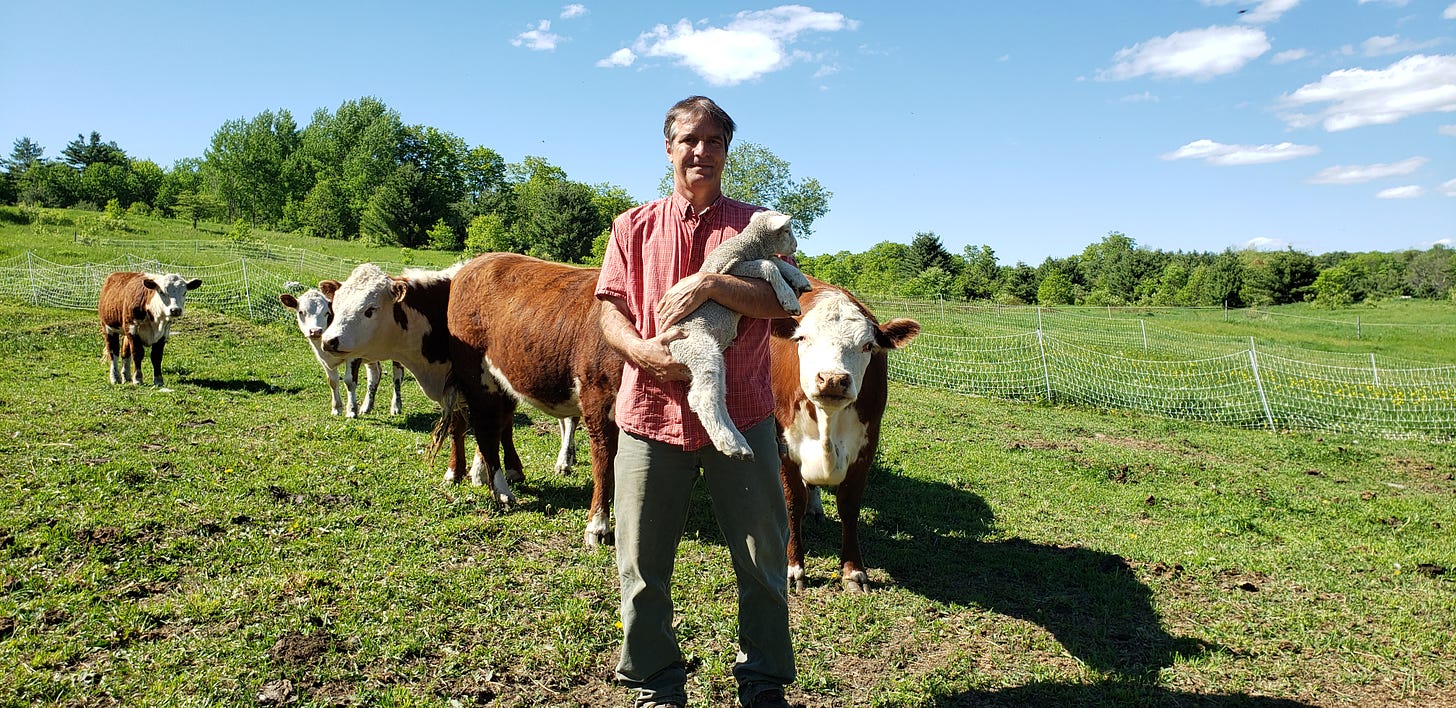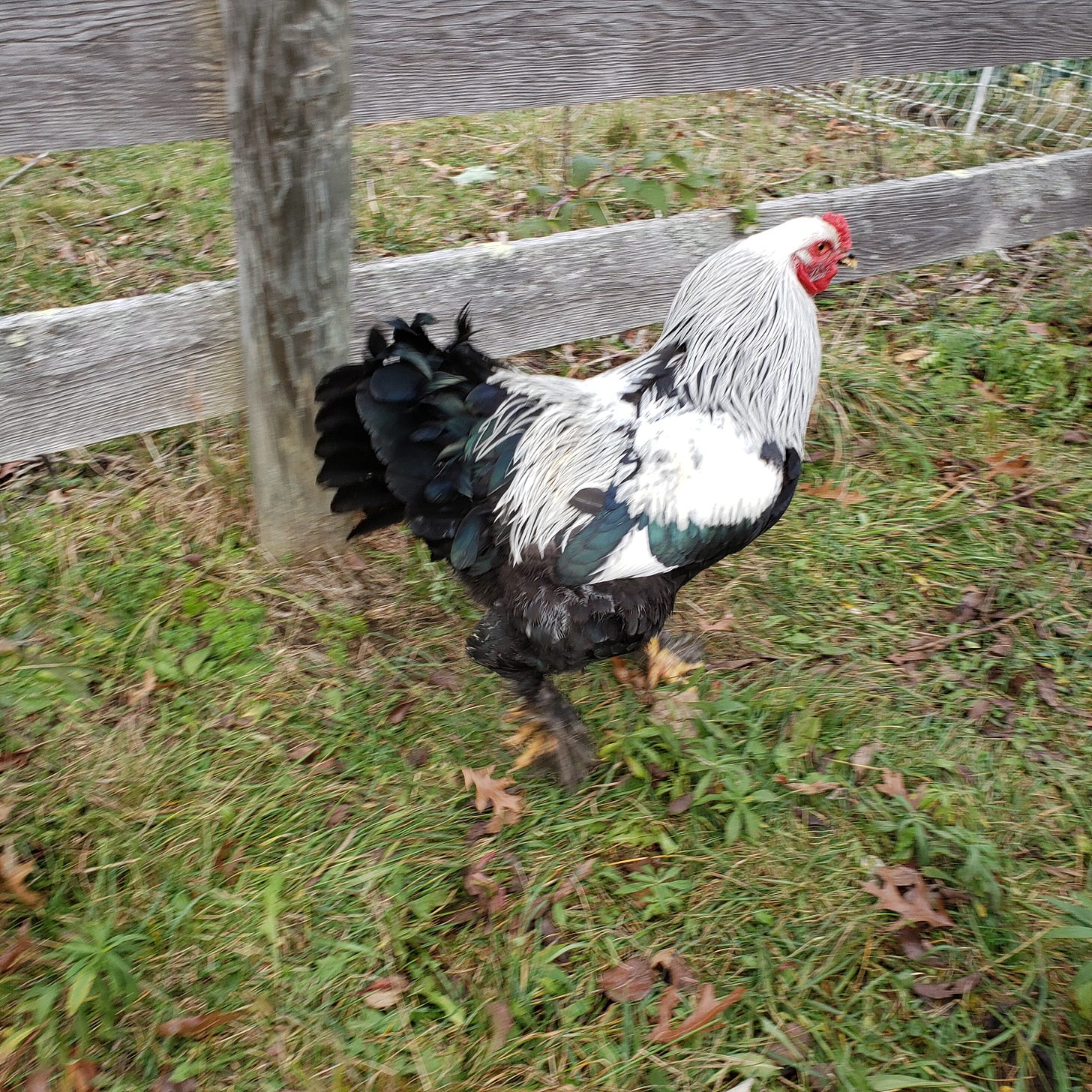Synthetic Chicken Will Never Fly
Synthetic Chicken Will Never Fly
Techno-flesh cannot replace livestock.
Recent revelations at a premier lab-grown meat startup suggest techno-mystical visions of cheap, plentiful, vat-cultured meats are a fantastical pipe dream. Venture capitalists and a climate-anxious public have been lured to believe synthetic animal meat substitutes will solve environmental problems while liberating farm animals. The chief hurdles for this nascent, aspirational industry are cost and scale: The alleged misrepresentations by billion-dollar Upside Foods in Emeryville, California, reflect an industry-wide cover-up of the impossibility of achieving cost savings, large-scale production, or environmental utility with vat-flesh.
The Downside of Upside
Upside Foods has repeatedly touted its technology to “cultivate” flavorful, whole cuts of synthetic chicken in its laboratory. Employee whistleblowers claim the company misled the public to believe it had developed the capacity to efficiently produce chicken breasts in bioreactors, when in fact the much-touted cutlets were laboriously manufactured by human hands tending hundreds of non-reusable plastic bottles coated in “porcine gelatin” and seeded with chicken cells in a “growth media” of “hormones, sugars, and other nutrients.” These were then hand-harvested using spatulas and manually layered or processed into pretend chicken fillets. The bioreactors installed to produce whole cuts of fake meat – and their attendant tubes, pipes, and electronic gadgetry – have stood idle (except for corporate promotion photo-ops).
Rampant Techno-Mystical Fraud?
A number of start-up companies seek to stake ground in the world of synthetic steak. Climate alarmists who insist cow flatulence is the death knell for humanity, allied with animal “rights” groups who wish to extinguish livestock in the name of protecting them, envision a meatless utopia in which large-scale factories fabricate fake flesh.
Upside Foods has raised hundreds of millions of dollars in investment capital on promises of technologies it will likely never create. Wired published an ex-Upside employee’s rationalization of the deliberate misinformation:
“This isn’t about lying. This isn’t about trying to trick people,” says a former senior Upside employee who left in 2022. “It’s a very specific PR dance where we need people to continue to believe in this industry and its potential, and to do that we need to share some of these milestones.” The former employee adds that the drive by senior leadership to constantly be the first to win industry races might jeopardize Upside’s success in the long term. “The biggest fear was more that we are constantly building the airplane while we fly it,” they say. “That could work out well, but would it be more prudent for us to pause flying and just continue building it and make sure it works as intended?”
Building airplanes while they are being flown high above the ground is an Icarian moral hazard blithely embraced by far too many techno-mystical, profit-driven ventures. The prophets of climate doom are too often also corporate profiteers: EVs face monumental challenges including lithium battery production shortfalls, externalized pollution costs in manufacturing, and insufficient grid power or charging stations to serve the public; solar panels involve the mining and burning of coal and other substantial pollution costs in production and disposal.
Of Cows and Synthetic Meat Bioreactors
When critics point out the problems of lithium battery production for EVs or coal mining for solar, the techno-mystical response is “We’re working on it.” As with completing planes prior to flying them, might it be prudent to retain cows until such time as this dubious lab-meat technology produces the promised bounty? Consider the costs of Upside’s meat-gunk creations: hundreds of hours of labor to manufacture just a few portions of consumable food along with wasted factory space that has to be heated, cooled, electrified, and plumbed to house rows of stainless steel 500-liter “bioreactors” that cannot successfully create a single whole cut of chicken. The “roller bottles” used to create the meat for public show are made from single-use plastic, and so the company likely produces plastic waste much faster than it makes meat.
A cow on pasture bypasses bioreactors, heated labs with lab-coated techies in masks, roller bottles, and the mountains of plastic. Then there are all those otherwise content cows that won’t have to be slaughtered for nothing. Erasing good farming where animals are well cared for to fuel venture capital science fiction laboratories that pollute while pretending to save the world is much like flying a plane while the engine is unbolted to the fuselage and the propeller is six inches too short. Cows produce manure that replaces synthetic fertilizers (made from methane), and seeds exponentially more methane sequestration by nourishing soils than bovines burp up or otherwise expel. Cows produce meat, milk, and leather by anaerobically digesting grass – nature’s solar panels powered renewably by photosynthesis – without coal or lithium, and without a costly, profit-driven, stainless steel anaerobic digester.
Synthetic Meats are DOA
Man’s meager mimicry of God’s creation ever falls short. Echoing the Fall, humans idolize the things they make with their own hands (Isaiah 2:8) above the natural provision of the earth and ecosystem. The war on cows is not an effort to preserve the planet but to amplify growing food hegemony by chemical-pushing oligopolies. Those who claim they have created an economically viable and ecologically friendly synthetic meat product are squeezing phony baloney into (plastic) snake oil bottles.
Synthetic meats were marketed as profitable to investors, framed as cost-saving when soy and other plants were vat-cultivated into filet mignon – and the planet would be saved from agricultural pollution! It’s the ancient promise of lead-into-gold chicanery, and it won’t work: Soy and other plant matter must be harvested using fossil fuels and GMO technologies dependent on massive chemical applications.
Even if Upside Foods and other meat-dreamers could manufacture steaks and burgers better than God has done in cows, their factory technology would still require chemicals and fossil fuels that degrade the soil and water – in lieu of cows, which do the opposite. And if asked, wouldn’t cows on pasture prefer a contented life on the land over no life at all? The synthetic-sounding answer to these common-sense questions hangs ready on pursed technocratic lips: “We’re working on it.”
Source: Small Farm Republic


Comments
Post a Comment